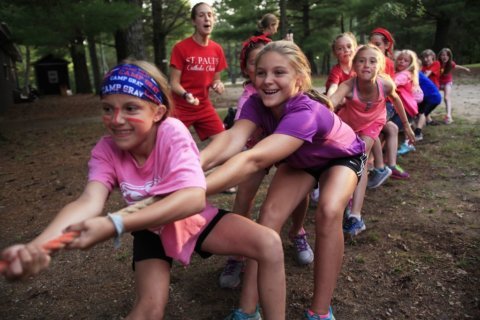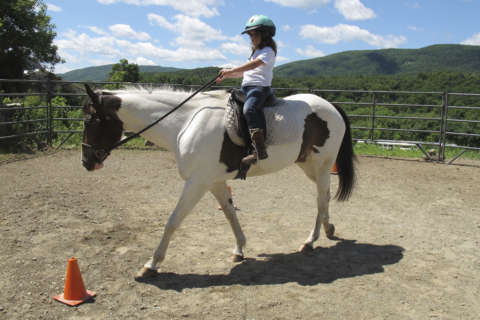WASHINGTON — Summer is still months away, but when it comes to camp, the time is now.
Registration for most camps in the D.C. area is open, and in some cases, even closed for programs that are already full.
If you’re interested in exposing your child to the summer camp experience, or are considering camp as a child care resource once school lets out, the team at Washington Parent magazine, which has provided camp information to local families for 35 years, has some tips to help you navigate the options available.
Something for everyone
One good thing about living in the D.C. area is that there is no shortage of camps to fit nearly every interest, schedule and budget. There are sleepaway camps for older kids who are ready to exercise some independence, and there are day camps with extended hours for working parents.
There are art camps, drama camps, music camps, and camps that cater to every sport. There are also plenty of options for kids interested in science and technology subjects.
“STEM is a very popular subject these days, so you’ll find your coding camps and robotics, and those are very popular,” said Jacky Dooly Martin, co-publisher of Washington Parent, which runs an annual camp guide both in print and online.
There are also camps geared toward children with special needs, as well as programs that focus on improving educational outcomes in specific subjects, such as math.
“The summer offers a great opportunity if you have a child who might need some extra help in a certain area,” Martin said.
“The sky’s the limit for summer camps and activities.”
The cost of camp
The cost of camp varies — from a few hundred dollars to a few thousand — depending on the program’s length, location, focus, etc. And all of those dollar signs add up for families with multiple kids and for those who need multiple weeks of programming.
Community-based camps, such as those offered at local rec centers and YMCAs, tend to be less expensive than private camps, Martin said. She recommends checking in with each camp individually. Many offer payment plans, scholarships and financial aid packages. And be sure to inquire about early-bird and/or sibling discounts to save money on registration.
Don’t forget about extra costs: Are materials and equipment included? Are there additional fees associated with the activities? What about extended days? Many camps offer before and aftercare to accommodate working parents for an additional price.
Do your research
It’s not unusual for parents new to the summer camp chaos to feel a bit overwhelmed by all the options out there, so Martin recommends doing both online and in-person research before committing to a camp.
Washington Parent will host its free 2019 Camp and Summer Fun Expo at Dulles Town Center Mall Feb. 23 and 24. There, parents can explore available options and meet one-on-one with camp directors and staff.
“Get an idea of what’s out there,” Martin said, adding that by the time the end of the school year rolls around, many camps will be at capacity.
“It’s definitely not too late, but I would definitely start.”
As for what to request from camp leaders, Martin recommends asking about the camp’s overall philosophy and the structure of a typical day.
“[Also], what is their screening of staff; how do they implement that? What is the staff-to-camper ratio? How are medical emergencies handled? Maybe you have a child on a medication, so you want to find out [the answers to] those important questions,” Martin said.
And finally, check to see if the camps in which you’re interested have an open house. This will give you an opportunity to visit the facility, meet the staff, hear more about the meal plan, and address any additional questions or concerns.






